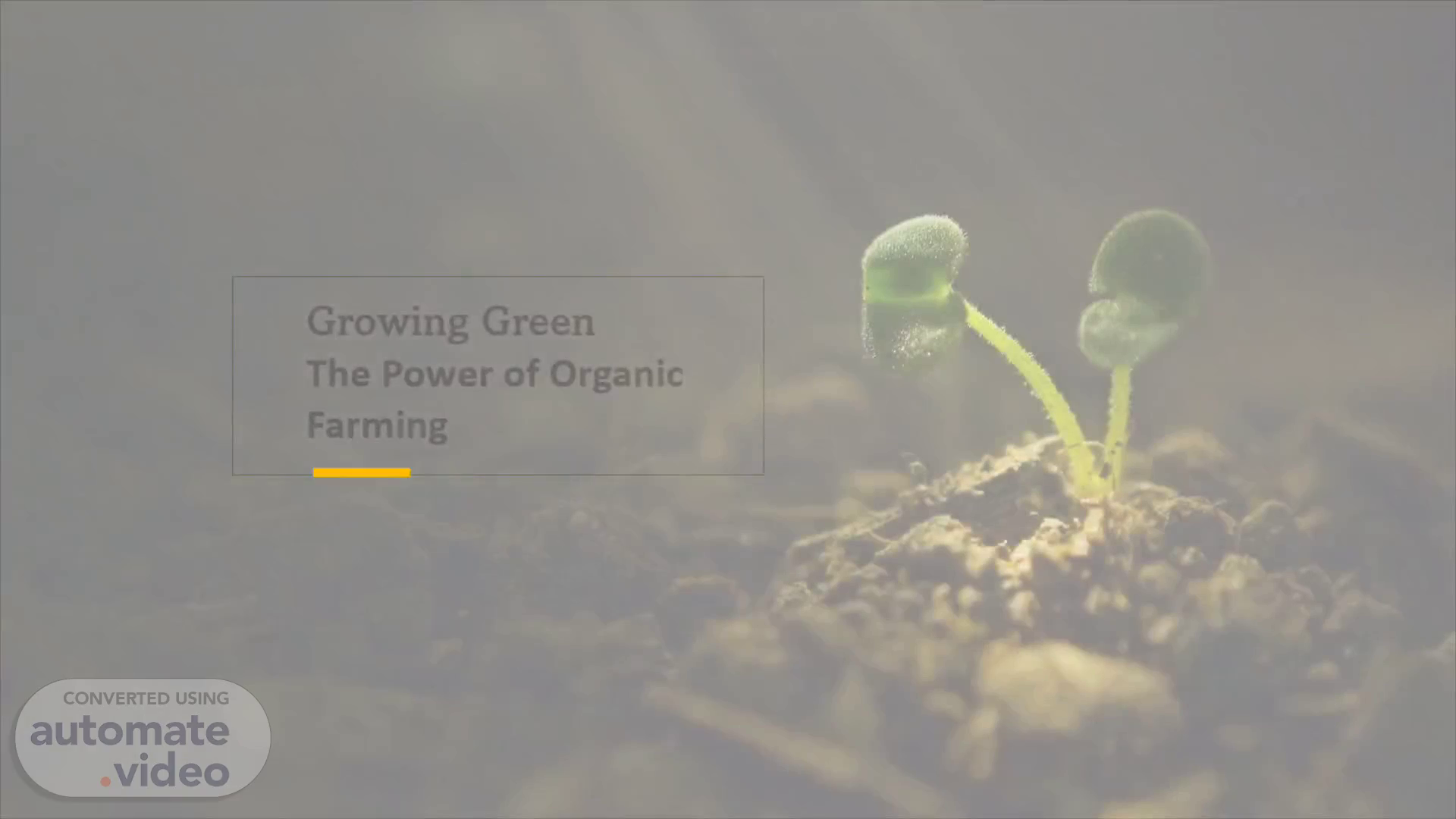Scene 1 (0s)
Growing Green The Power of Organic Farming. Green seedling sprouting on the earth.
Scene 2 (8s)
What is Organic Farming?. Benefits of Organic Farming.
Scene 3 (21s)
What is Organic Farming?. Organic farming is a method of agriculture that relies on natural processes and substances to maintain soil fertility and control pests. This means that synthetic fertilizers, pesticides, and herbicides are not used in organic farming. Instead, organic farmers use techniques such as crop rotation, composting, and natural pest control to ensure the health of their crops..
Scene 4 (54s)
Benefits of Organic Farming. Organic farming offers a multitude of benefits over conventional farming practices. For starters, it promotes healthier soil and water systems by avoiding the use of harmful chemicals and fertilizers. This not only results in cleaner produce for consumers, but also helps protect the environment from pollution..
Scene 5 (1m 20s)
Organic Farming Techniques. One of the key techniques used in organic farming is crop rotation. This involves planting different crops in a specific order to help maintain soil fertility and reduce the risk of pests and diseases. For example, a farmer might plant legumes one year to fix nitrogen in the soil, followed by a grain crop the next year to use that nitrogen and add organic matter to the soil..
Scene 6 (1m 50s)
Organic Farming and the Environment. Organic farming has a significant impact on the environment. By avoiding the use of synthetic pesticides and fertilizers, organic farmers reduce the amount of harmful chemicals that enter our soil and waterways. This helps protect the health of both humans and wildlife, as well as promoting biodiversity..
Scene 7 (2m 20s)
Challenges of Organic Farming. One of the biggest challenges faced by organic farmers is the higher cost of production. Organic farming practices require more labor and resources, which can drive up the cost of production compared to conventional farming methods. This makes it difficult for small-scale farmers to compete in the market..
Scene 8 (2m 48s)
The Future of Organic Farming Organic farming has the potential to revolutionize the way we produce food and address global food security concerns. By using natural techniques like crop rotation, composting, and natural pest control, organic farmers can increase yields while also promoting soil health and biodiversity. Furthermore, organic farming is a sustainable alternative to conventional farming practices that rely heavily on synthetic fertilizers and pesticides. With the threat of climate change looming, it is more important than ever to adopt sustainable agricultural practices that can mitigate its impact and ensure long-term food security for our planet..
Scene 9 (3m 16s)
Our Team. A picture containing person, clothing, human face, shirt Description automatically generated.
Scene 10 (3m 34s)
THANK YOU. Rolling agricultural landscape.
